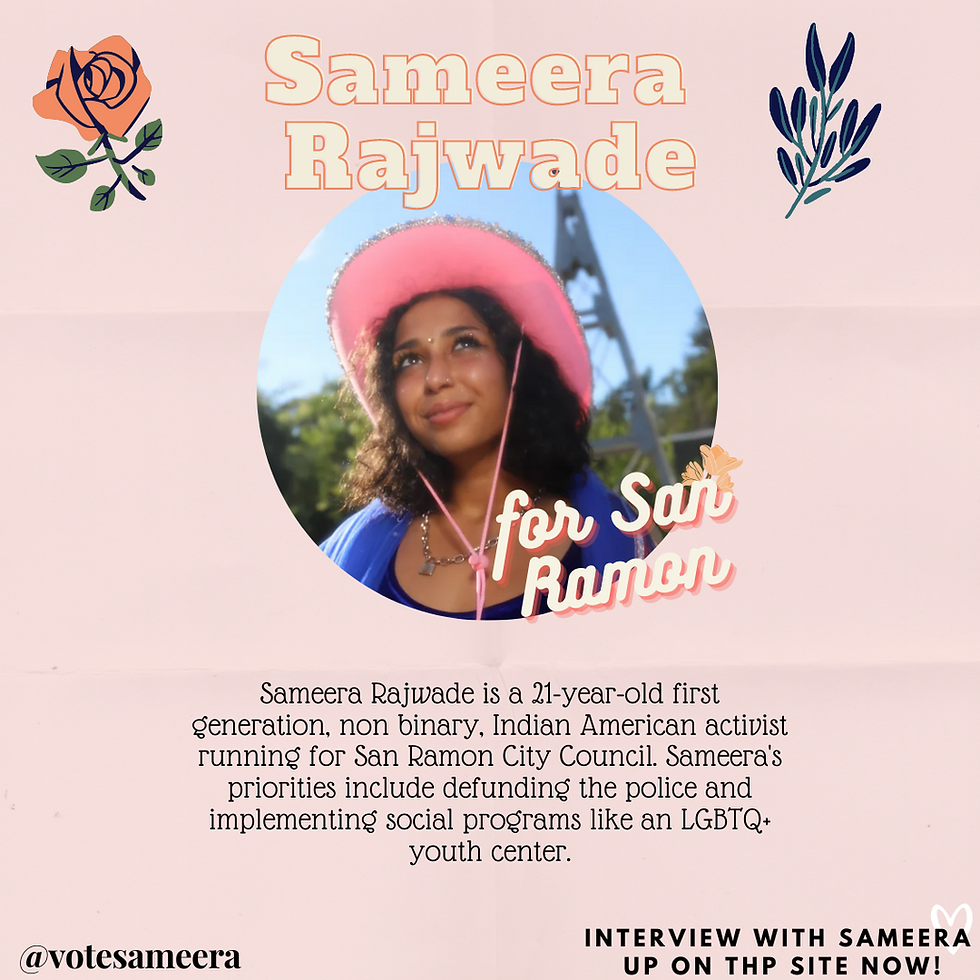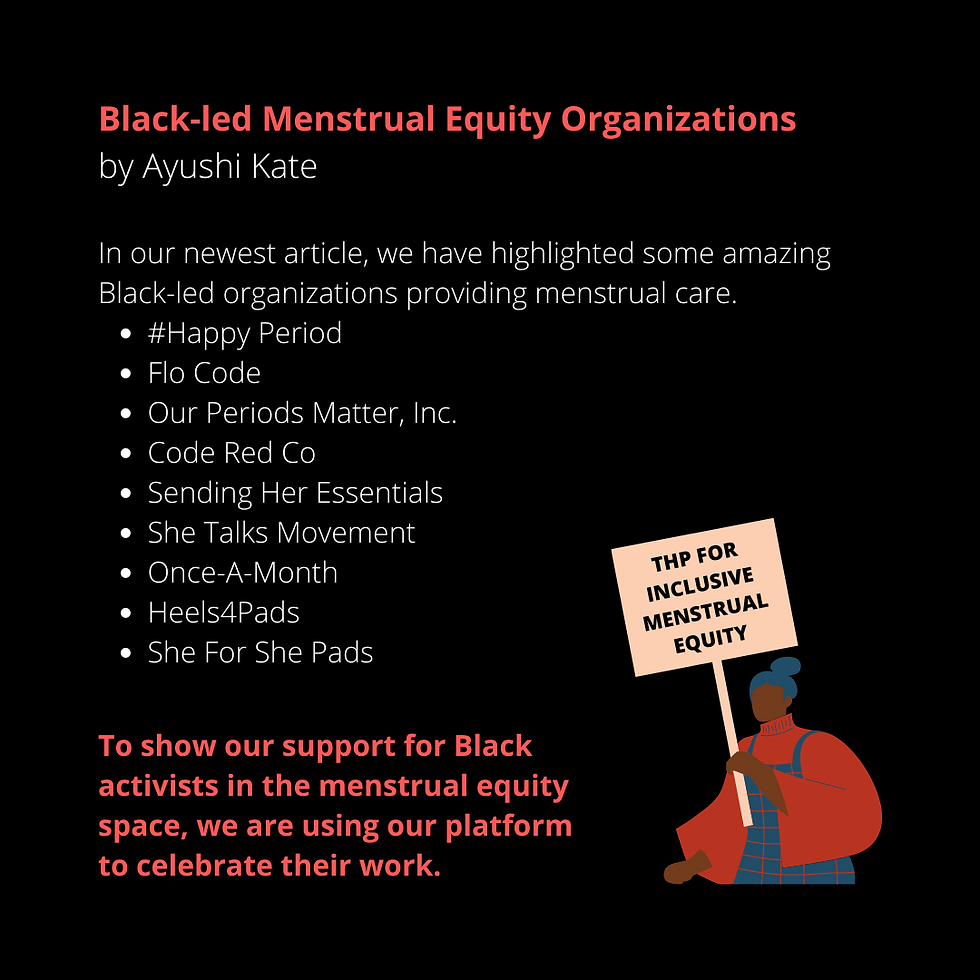Interview: A Teen Mobilizer on Advocating for Youth in Government
- Feb 17, 2019
- 4 min read
The Homegirl Project interviewed Sachi Madan: the Washington Chapter Director of BackPac and a National Officer for Next Generation Politics, about the importance of political advocacy and representation in government.
By Mishti Dhawan

MD: Who is Sachi Madan in your own words? What makes you you?
SM: An interesting fact about me is that I have lived in 5 different countries (Finland, Singapore, Luxembourg, England, and the United States) which has made me a very open-minded person, as I was exposed to different cultures growing up. Due to this exposure to diverse cultures and people, I was raised as a very non-judging person, and because of that I have always been very interested in political advocacy. To me, it is very important to be non-judging and accepting of all groups of people to prevent the misrepresentation of communities.
MD: How did this open-minded experience translate into advocacy?
SM: I started the Washington Chapter for BackPAC, a student-led political action committee that strives to promote youth advocacy and awareness within Washington. Through this organization, I have planned and executed multiple Voter Registration Drives, and have hosted events that connect youth with politicians. I also work with Next Generation Politics, a non-profit organization, and I put on events that connect youth to politicians. We organize civic forums in New York, featuring different issues every month, and my goal is to ensure that youth get a voice and are somehow connected to politics because our generation has a passion towards politics. I am also one of the Directors for a club at my school called Students Organized Against Racism (SOAR) and I find out about policies passing in the Bellevue School District that impact students in our community.

MD: When did you first become passionate about politics and activism?
SM: Having lived in different countries, I learned a lot about different cultures. When I moved to the United States before the 2016 election, I realized that there was a lot of tension in the country. Having the fresh perspective of someone who was exposed to a diverse range of cultures, I found myself interested in political advocacy, especially because our country was in a state of turmoil, and I wanted to take some action to work towards resolving that tension.
MD: How has being a woman of color shaped your journey towards political activism and advocacy?
SM: I was 8 years old and I was living in England at that time when my Dad’s boss made a sexist remark about women politicians. Growing up, it was experiences like these that really motivated me to become a political advocate in my community because I wanted to challenge the notion that women are obnoxious and man-hating. Also, women of color often aren’t represented in the government and we need more representation. A lot of policies that impact women like laws on reproductive rights are often passed by men, when they should be passed by women since we are the ones most impacted by those policies. So, being a woman of color who experienced the lack of representation and sexist remarks while growing up, I wanted to change those things by getting politically involved.
MD: Were there any challenges that you faced when organizing events, panels, and activities targeted towards political discourse and action?
SM: Throughout high school, the most common experiences that I have had have been with micro-aggressions and remarks that people make that can sometimes slow down the process of political advocacy. I have felt like my school community is judgmental and often denies experiences related to racism. Being a woman of color, I have also experienced the challenge of not being taken seriously or paid attention to for getting approval from administration for political discourse events and activities.
MD: What challenges do you think women of color still face in politics, and in what ways is that changing?
SM: One of the biggest challenges that we face is the perception that women are too angry and obnoxious. We are ridiculed for being too angry and obnoxious, but really we’re being passionate. And if a man was being passionate, it really wouldn’t be that big of a deal. Also, things that directly impact us, as women, are often deemed unimportant or too controversial, causing them to be ignored and avoided. The idea of feminism is also critiqued and seen as man-hating when it’s really about equality for everyone. These misconceptions can slow us down, but things have been changing. More women are being elected to the government. This can be seen by the number of women who were elected to the House of Representatives just this year. These women are bringing the discussions that have previously been avoided, to the forefront. A lot of the change is also because of our generation as we are unafraid of having discussions on important topics.
MD: What motivates you to continue your journey of encouraging youth involvement?
SM: I have a lot of hope and I strongly believe in our generation. We are so unafraid of changing things, which is why our generation is deemed to be fearless. Looking at actions that youth have taken such as the March For Our Lives initiative, I am reminded that we can all take negative experiences and turn them around to create change. We’re not afraid of having barriers and because of that we have the power to bring change to our communities.
MD: What advice would you give to young activists of color?
SM: Don’t give up. There’s someone out there who cares about what you have to say. I care about what you have to say and people out there care about what you have to say. But remember that actions speak louder than words. Just talking about political action and advocacy won’t do it. You have to go out there and take action.




Comments